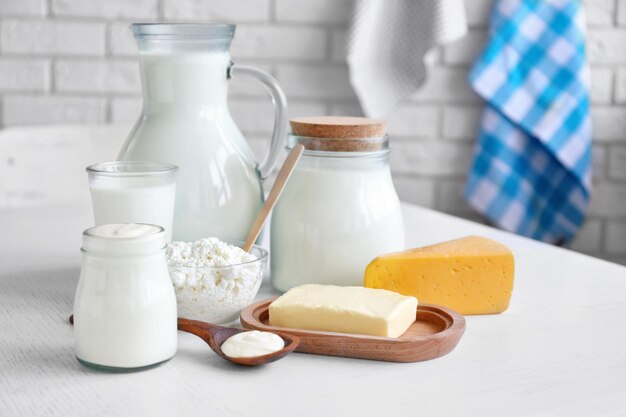Calcium is an essential mineral that plays a vital role in maintaining strong bones and teeth, supporting muscle function, and regulating nerve signaling. For South Africans looking to boost their calcium intake, incorporating calcium-rich foods into their diet is crucial. Dairy products are well-known calcium sources, but there are also plenty of plant-based options and other nutrient-dense foods that can help meet your daily calcium needs. Here are 20 foods that are great for increasing calcium intake:
1. Milk
Milk is one of the most accessible and efficient sources of calcium. A single cup of milk contains about 300 mg of calcium, which is a significant portion of the daily recommended intake for adults.
2. Cheese
Cheese, particularly hard varieties like cheddar, gouda, and parmesan, is high in calcium. A single slice of cheese can contain between 100 to 200 mg of calcium, making it an excellent choice for bone health.
3. Yogurt
Yogurt, especially plain Greek yogurt, is a fantastic source of calcium. One cup can provide up to 450 mg of calcium, along with probiotics that support digestive health.
4. Sardines
Sardines, particularly those canned with bones, are incredibly rich in calcium. A single serving of sardines can provide about 325 mg of calcium, along with omega-3 fatty acids and vitamin D.
5. Almonds
Almonds are a great plant-based source of calcium. A handful (about 28 grams) of almonds can provide around 80 mg of calcium, along with healthy fats and protein.
6. Kale
Leafy green vegetables like kale are rich in calcium. One cup of cooked kale contains approximately 100 mg of calcium. It’s also a great source of vitamin K, which supports bone health.
7. Spinach
Spinach is another leafy green packed with calcium. A cup of cooked spinach can provide about 240 mg of calcium, although its oxalate content can reduce calcium absorption, so it’s best consumed in moderation.
8. Tofu
Tofu, especially calcium-set tofu, is an excellent source of calcium for vegetarians and vegans. Half a cup can provide up to 400 mg of calcium, making it a great alternative to dairy products.
9. Fortified Plant Milks
Plant-based milks, such as almond milk, soy milk, and rice milk, are often fortified with calcium. A single cup of fortified plant milk can contain as much calcium as cow’s milk, making it a great option for those avoiding dairy.
10. Oranges
Oranges are known for their vitamin C content, but they also contain calcium. A medium-sized orange provides about 50 mg of calcium, and calcium-fortified orange juice can contain much more.
11. Bok Choy
Bok choy, a leafy green vegetable popular in Asian cuisine, is rich in calcium. One cup of cooked bok choy contains about 150 mg of calcium and can be easily added to stir-fries and soups.
12. Broccoli
Broccoli is a calcium-rich vegetable, with one cup of cooked broccoli providing about 60 mg of calcium. It’s also high in other nutrients like fiber and vitamin C.
13. Chia Seeds
Chia seeds are a superfood that packs a calcium punch. Just two tablespoons of chia seeds contain around 180 mg of calcium. They can easily be added to smoothies, yogurt, or oatmeal.
14. Figs
Figs, whether fresh or dried, are a sweet and nutritious source of calcium. Five dried figs provide about 135 mg of calcium, along with fiber and antioxidants.
15. Sesame Seeds
Sesame seeds are tiny but mighty when it comes to calcium. Just one tablespoon of sesame seeds provides around 90 mg of calcium. They can be sprinkled on salads, baked goods, or used in tahini.
16. Fortified Cereals
Many breakfast cereals are fortified with calcium, providing an easy way to boost your intake. A serving of fortified cereal can contain anywhere from 100 to 1000 mg of calcium, depending on the brand.
17. White Beans
White beans, also known as cannellini beans, are a great source of plant-based calcium. One cup of cooked white beans provides about 160 mg of calcium and a good amount of protein and fiber.
18. Amaranth
Amaranth is a nutrient-dense grain that provides about 116 mg of calcium per cooked cup. It’s also gluten-free and rich in protein, making it a great choice for those with dietary restrictions.
19. Turnip Greens
Turnip greens, often used in African cuisine, are rich in calcium. One cup of cooked turnip greens contains about 200 mg of calcium. They’re also a good source of vitamins A and C.
20. Oysters
Oysters are not only a rich source of zinc and vitamin B12, but they also contain calcium. A 100-gram serving of oysters provides about 100 mg of calcium, making them a nutritious addition to your diet.
Boosting your calcium intake is essential for maintaining strong bones, teeth, and overall health. Incorporating a variety of calcium-rich foods like dairy, leafy greens, nuts, seeds, and fortified products can help you meet your daily requirements. Whether you prefer plant-based options or animal products, there are plenty of delicious and nutritious foods available to support your calcium needs. Always aim for a balanced diet, and consult a healthcare provider if you have specific concerns about calcium intake or bone health.








